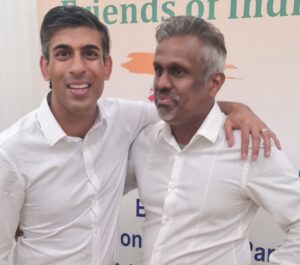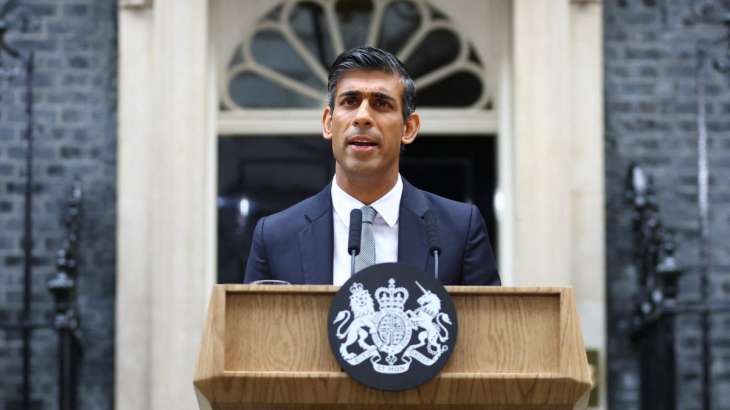In August of this year, Sunak reaffirmed his commitment to justice for mass atrocities committed in Sri Lanka and discussed the possibility of applying targeted sanctions on Sri Lankan officials just as the UK has on Russians. Sunak met with Tamil conservatives where he praised their contribution to British life and addressed concerns regarding the situation in Sri Lanka.
In his opening statement earlier this year, Sunak reflected on Sri Lanka’s dire economic straits with record levels of inflation and shortages of basic necessities.
“My heart goes out to all of you and all of those in Sri Lanka,” he told the online audience. He went on to stress his vision for a democratic island free from corruption and “inappropriate influence from the military”. To achieve this and overcome the crippling economic disaster, Sunak maintained the importance of conditional aid through the International Monetary Fund, which is currently in negotiations with the Sri Lankan government.
Sunak went on to reflect on the “hurt and pain caused by the civil war and the events of 2009,” as he empathised with Tamils in their struggle for justice and accountability for mass atrocities committed during the final stages of the armed conflict.
 He emphasized his support for members of international community in taking a tougher stance on Sri Lanka, prompted by Sri Lanka’s withdrawal from a resolution that was passed by the UN Human Rights Council.
He emphasized his support for members of international community in taking a tougher stance on Sri Lanka, prompted by Sri Lanka’s withdrawal from a resolution that was passed by the UN Human Rights Council.
“I am proud of the UK’s role, and the UK will continue to play a central role in bringing about justice and accountability,” he said.
In his statement, he stressed his support for the latest UN resolution on Sri Lanka, which mandated the collection of evidence that may be used in a future war crimes tribunal. The resolution, however, has been seen by many Tamil activists and human rights campaigners as falling short of delivering on justice and as a “time-buying exercise”.
Asked how Britain would ensure that Sri Lanka officials would not spend their “ill-gotten gains in the UK”, Sunak responded by stating that any future government under him would look at “how we’ve done this to Russian officials”.
“I helped put this together” Sunak stated. “We’ve got a much better playbook and we know more about how to do it… It is a new tool in our toolkit”.
The statement comes amidst growing calls for sanctions on senior Sri Lankan officials accused of war crimes and genocide, as well as for prosecutions in domestic courts around the world under the principle of universal jurisdiction.
Commenting on the demand to recognise the Tamil genocide, Sunak stated that he would look into the matter and that different countries would have different standards but that for the UK this would be a legal matter following a court proceeding.
On the question of broader sanctions on Sri Lanka, Sunak maintained that this was a difficult balance as the island’s “very vulnerable need assistance” and that he does not want to “hold them hostage”. However, he stressed the need for structural reform and conditions on aid to Sri Lanka. A further concern he raised, however, was the influence of China as he warned against pushing “Sri Lanka into Chinese hands”.
 This is not the first time Sunak has spoken on Sri Lanka. In October 2020, whilst Chancellor of the UK, Sunak, wrote to the British Tamil Conservatives (BTC), telling them “I want to first stress how strongly I share you concerns about the human rights situation in Sri Lanka, particularly the government’s withdrawal from the UNHRC process.”
This is not the first time Sunak has spoken on Sri Lanka. In October 2020, whilst Chancellor of the UK, Sunak, wrote to the British Tamil Conservatives (BTC), telling them “I want to first stress how strongly I share you concerns about the human rights situation in Sri Lanka, particularly the government’s withdrawal from the UNHRC process.”


